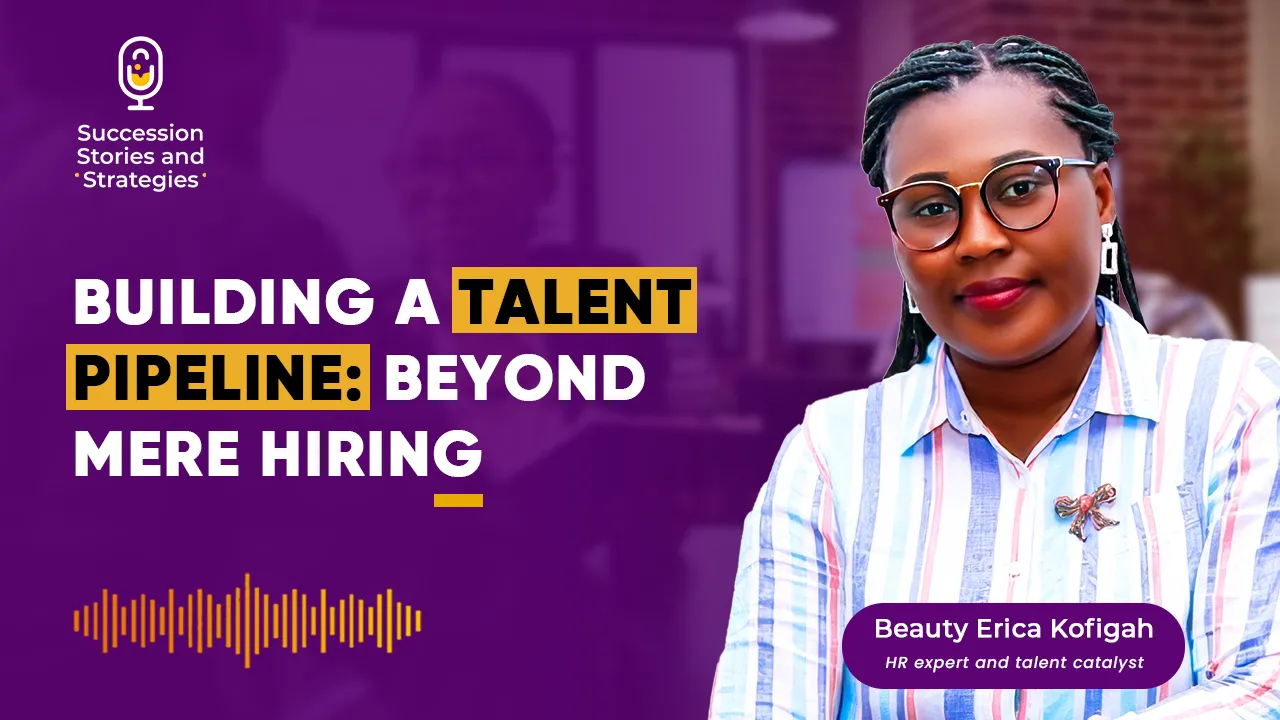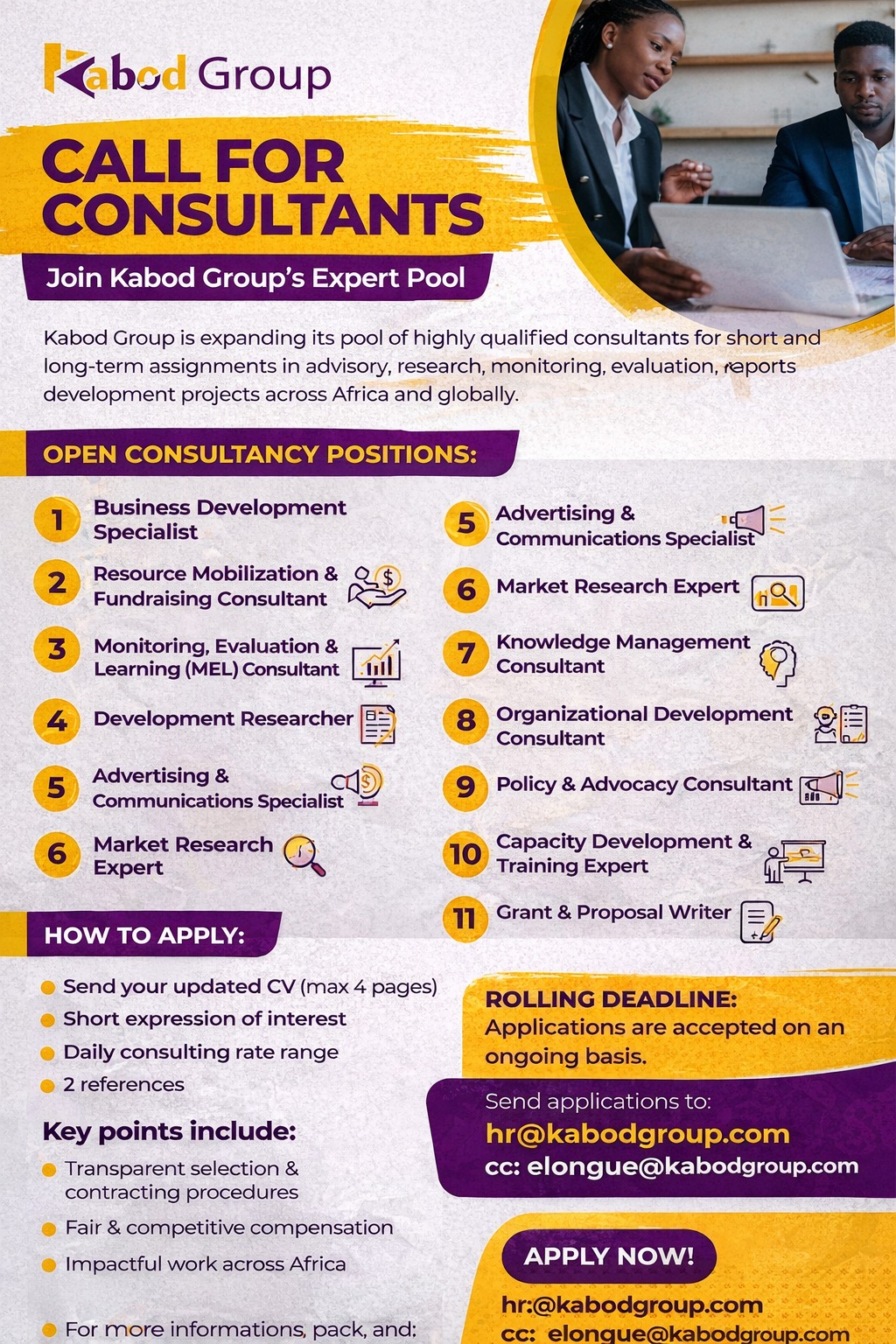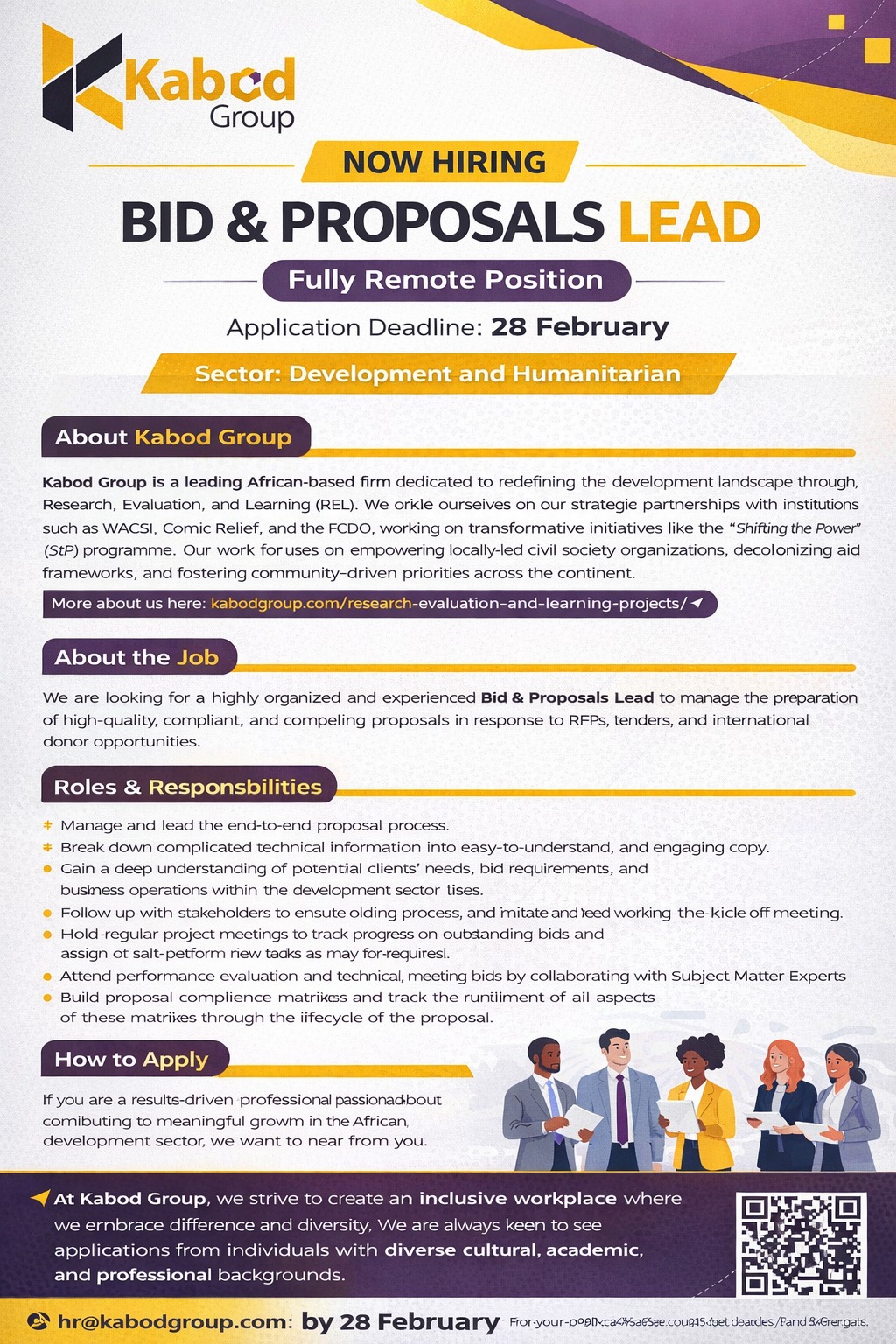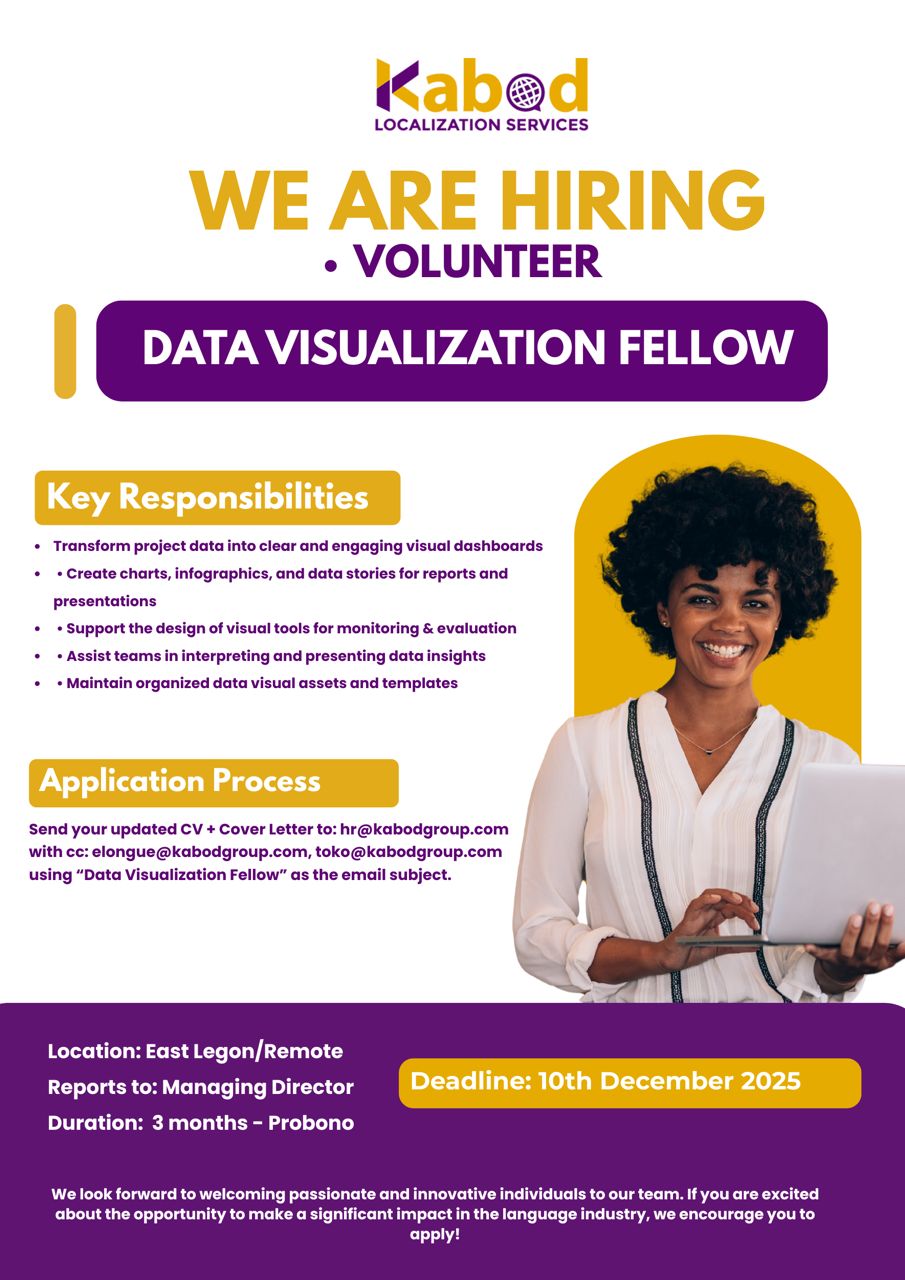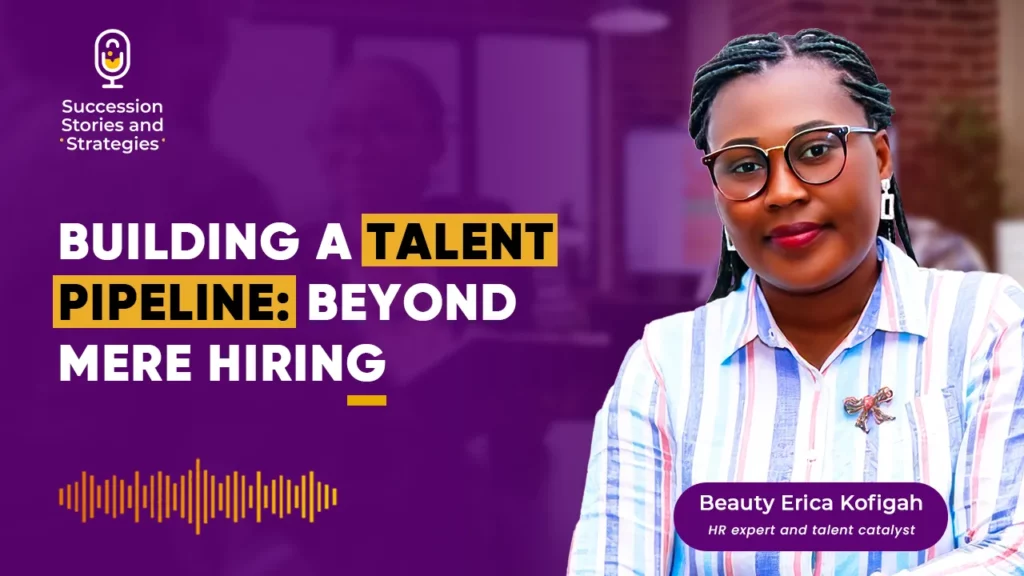
On episode 6 of the Succession Stories & Strategies podcast, we had the pleasure of interviewing Ms. Beauty Erica Kofigah, an HR expert and talent catalyst with extensive experience in logistics and program management. With a passion for empowering careers and communities, Ms. Kofigah has dedicated her career to helping individuals identify their potential and career prospects.
A Deeper Look at Talent Pipelines
The discussion focused on the crucial topic of building a talent pipeline, particularly for firms in Africa. Ms. Kofigah emphasized that a talent pipeline is more than just hiring the right individuals; it is about nurturing and developing employees to reach their full potential. She described it as a strategic reservoir of talent that organizations can tap into for current and future roles. This approach ensures a continuous supply of qualified candidates ready to fill key positions as they become available.
Key Benefits of a Talent Pipeline
Ms. Kofigah outlined several significant benefits of implementing a talent pipeline:
1. Cost Reduction: By having a pool of qualified candidates ready to step in, organizations can reduce recruitment costs significantly.
2. Skill Gap Mitigation: Continuously developing and preparing potential candidates helps address skill gaps within the organization.
3. Improved Retention: Offering internal growth opportunities through a talent pipeline improves employee retention and reduces turnover rates.
On episode 6 of the Succession Stories & Strategies podcast, we had the pleasure of interviewing Ms. Beauty Erica Kofigah, an HR expert and talent catalyst with extensive experience in logistics and program management. With a passion for empowering careers and communities, Ms. Kofigah has dedicated her career to helping individuals identify their potential and career prospects.
A Deeper Look at Talent Pipelines
The discussion focused on the crucial topic of building a talent pipeline, particularly for firms in Africa. Ms. Kofigah emphasized that a talent pipeline is more than just hiring the right individuals; it is about nurturing and developing employees to reach their full potential. She described it as a strategic reservoir of talent that organizations can tap into for current and future roles. This approach ensures a continuous supply of qualified candidates ready to fill key positions as they become available.
Key Benefits of a Talent Pipeline
Ms. Kofigah outlined several significant benefits of implementing a talent pipeline:
1. Cost Reduction: By having a pool of qualified candidates ready to step in, organizations can reduce recruitment costs significantly.
2. Skill Gap Mitigation: Continuously developing and preparing potential candidates helps address skill gaps within the organization.
3. Improved Retention: Offering internal growth opportunities through a talent pipeline improves employee retention and reduces turnover rates.
Innovative Sourcing and Nurturing Strategies
The conversation also explored innovative ways to source potential candidates and keep them engaged, especially in the dynamic African job market. Ms. Kofigah shared the following strategies:
- Educational Partnerships: Collaborating with educational institutions and vocational schools to create internship programs and talent development avenues.
- Social Media Utilization: Leveraging social media platforms and online job portals to showcase company culture and attract potential candidates.
The Importance of Mentorship and Coaching
Ms. Kofigah highlighted the vital role of mentorship and coaching in internal talent development. Pairing employees with mentors within the organization can guide their career development, provide support, and accelerate their growth. Mentorship and coaching are cost-effective ways to nurture talent and uncover hidden potentials within the organization.
Measuring Talent Pipeline Success
To assess the effectiveness of talent pipeline strategies, Ms. Kofigah discussed various metrics and indicators:
- Feedback Approach: Seeking feedback from candidates and managers who have gone through the pipeline process to identify areas for improvement.
- Candidate Engagement: High engagement with candidates indicates their interest and investment in the organization, leading to better retention and success.
Leveraging AI in Talent Pipeline Management
The role of AI in enhancing talent pipeline management was another focal point. Ms. Kofigah explained that AI-powered recruitment tools like Turing, Findem, Talenture etc can automate resume screening, and candidate matching, and analyse candidate preferences, improving accuracy and efficiency in the recruitment process. AI-powered applicant tracking systems can streamline the process and centralize communication.
Building a Talent Pipeline in Remote Work Settings
Ms. Kofigah emphasized that building a talent pipeline is possible regardless of the work setting, whether remote or traditional. She mentioned that it is essential to have strategies in place to ensure work is done effectively and to support employees in any location.
Conclusion
The conversation with Ms. Kofigah underscored the importance of investing in talent development. She encouraged organizations to offer opportunities for internships, training, and career growth, emphasizing that investing in people is far more effective than waiting until the need for talent arises.
Ms. Kofigah’s expertise and passion for talent development provided a wealth of knowledge for building a robust talent pipeline, crucial for the sustainable growth of African firms. For further discussions and assistance with career development, Ms. Kofigah can be contacted via LinkedIn and email [beautyerica75@gmail.com]

